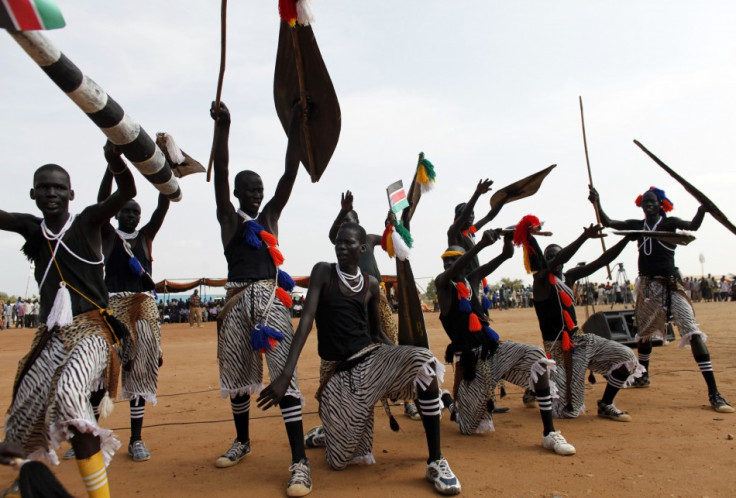Despite South Sudan Celebrations, a Rough Road Ahead

South Sudan's capital, Juba, was today overflowing with people dancing and marching in the streets, enveloped by the country's flag, or wearing traditional clothes.
The celebrations are taking place ahead of the secession that will see Africa's largest country split into two states at midnight, a separation it won at the climax of an internationally brokered 2005 peace deal that ended decades of civil war with the north.
After today, Sudan will be split, and while many insisted dividing the country would help move on from years of conflicts, violent confrontations conflict along its north-south border and poverty still striking, international concerns for the future stability of the huge, fractured and largely impoverished territory that straddles Arab and sub-Saharan Africa are growing.
Despite external concerns, the south is clearly impatiently waiting for independence as many seeing it as a moment of liberation after years of fighting and perceived repression, dating back to raids by Arab slave traders.
When the country's oil-producing south gains its independence, it will take around 75 per cent of the country's known oil reserves with it ,depriving the Khartoum government of more than a third of its national revenues, the northern finance minister said last month.
While this can only be source of rejoicement for the South Sudanese, analysts are anxious to see how the Omar Al-Bashir regime will react in the next few months since despite the president this week praising the south and claiming he will support it, many remain suspicious.
Police and soldiers in Juba banned celebratory gunfire, seized weapons and searched cars as the security forces are determined to protect the high profile dignitaries and politicians flowing into a city awash with small arms.
A red digital display on a city roundabout counted down the seconds to independence. "Free at last," one message on the display board flashed.
In sharp contrast, the streets were largely empty in the northern capital Khartoum on Friday, the start of the weekend in the Muslim north. While some northerners are hopeing the cessation will put a definite end to the war, many are less enthusiastic, as the land and resources will be divided.
"This overwhelming of sorrow, of sadness is wrapping around us. I cannot put my feelings into words. It is beyond expression. I am in a vacuum. I want to go into hibernation," the spokeswoman for the opposition UMMA party Mariam al-Mahdi told Reuters.
Also, despite the countries officially separating tomorrow the north and south leaders have still to agree on key issues such as the management oil revenues, the lifeblood of both their economies. As most of those areas are contentious many still insist that the possibility of renewed violence should not be excluded.
North Sudan has the only pipelines in the country, and has threatened to block them if the south does not pay enough. Southern officials today said they would be able to live off credit, using their oil reserves as collateral, if the north carried out its threat.
Sudan's President Omar Hassan al-Bashir, who will lead the north after the split, yesterday said he would fly to Juba for the independence celebrations and promised friendly relations.
But he sent out a stern message to rebel movements in the north, saying he would not take part in any more international peace talks with armed groups. Khartoum is fighting rebels in the Darfur region and, since early June, in its main remaining oil state Southern Kordofan. Both regions border the south.
Analysts have accused Khartoum of targeting civilians from the ethnic Nuba group in Kordofan - many of whom fought alongside south in the civil war - with a military ground and air campaign but Khartoum denies the accusation.
Washington's ambassador to the United Nations Susan Rice yesterday said even after independence, it would be necessary to keep the U.N. peacekeeping forces in South Kordofan but Khartoum has said it wants the UN forces , deployed to monitor the 2005 peace deal, to go.
South Sudan might be celebrating, but the harsh reality will soon catch up as the country will start life as one of the least developed nations on earth, despite its oil revenues.
Aid group Medecins Sans Frontieres said the south was going through a humanitarian crisis and as the country will have to face a mix of existing poverty compounded by disease outbreaks, tribal and rebel clashes and the expected return of around 300,000 southerners ahead of the independence, tomorrow, the future might not sound as bright as it is today.
© Copyright IBTimes 2025. All rights reserved.



















